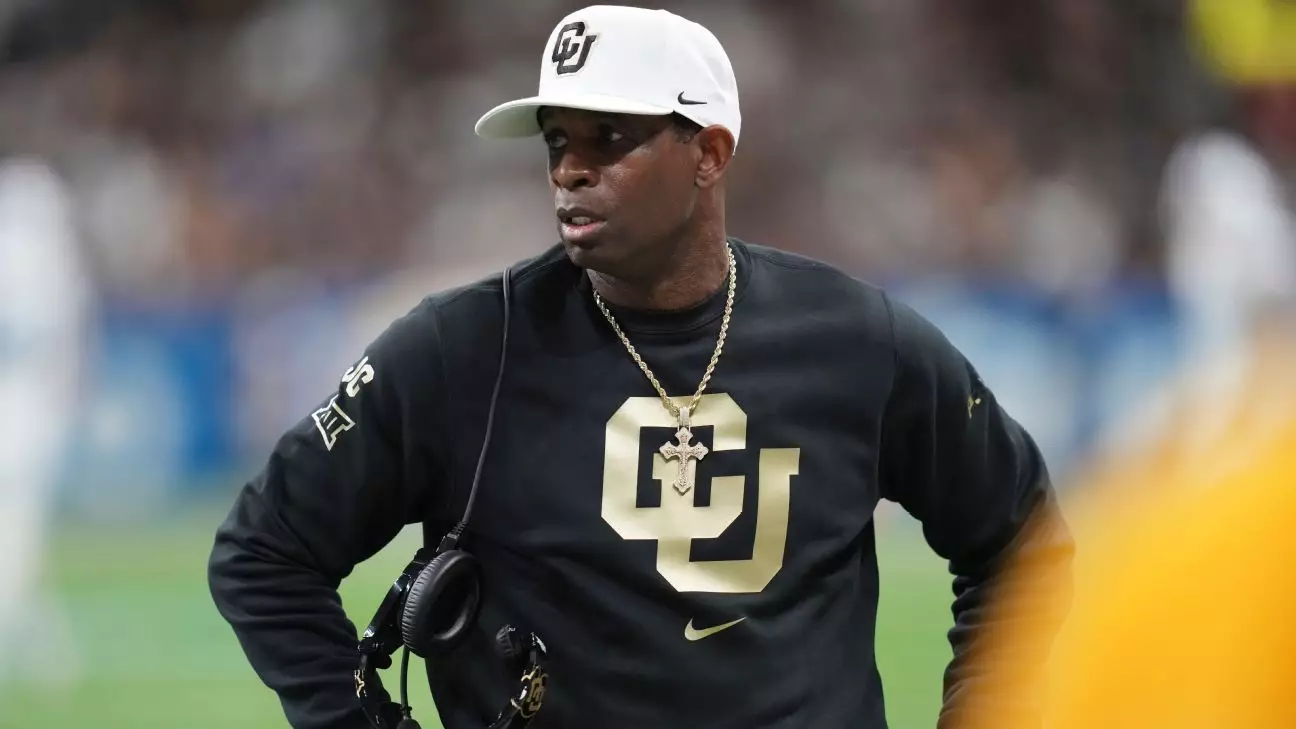The intersection of celebrity and sport often brings fascinating narratives to the forefront, particularly when personalities such as Deion Sanders are involved. Known for his charismatic presence and dynamic playing style, Sanders has transitioned from a legendary NFL player to a head coach at the University of Colorado. Recently, he faced a pivotal decision regarding interest from the Dallas Cowboys for their open coaching position. Yet, despite the allure of returning to professional football, Sanders chose to remain with the Buffaloes. This reflected not just his commitment to his current role but also his deeper insights into the changing landscape of football coaching.
The NFL is often seen as the pinnacle of football, and for many, coaching at this level is a dream opportunity. However, Sanders has articulated hesitations about embracing that ambition. On his talk show, “We Got Time Today,” he stated candidly, “I couldn’t coach pro ball,” suggesting that the traditions, practices, and intensity of the current professional game do not align with his personal philosophy and approach to the sport. This assertion raises essential questions about how coaching styles evolve and what the demands of the professional game entail for those who inhabit its highest echelons.
Coaching at the college level allows for more developmental opportunities, where Sanders can cultivate young talent over several years and instill values that go beyond mere tactics. His unwillingness to participate in the NFL’s blunt, high-pressure environment indicates a nuanced understanding of what it means to mentor athletes, rather than simply managing a roster of professionals.
Sanders’ reminiscing with former teammate Troy Aikman about their intense training days in the 1990s adds another layer to this dialogue. The nostalgia for a different era of football often burdens current conversations—it’s clear that practices have shifted, with newer teams pushing for efficiency rather than intensity. Sanders’ experience evokes a paradox: While the passion for the game remains, the structural changes in the NFL may alienate individuals like him who thrive in a culture that fosters unity and grit rather than rapid turnovers and short-term results.
The mention of the Cowboys’ hiring process brings another dimension to Sanders’ narrative. Despite his connection to the team and his proven capabilities, he missed an opportunity many thought was warranted. Aikman voiced his surprise and dismay at Jerry Jones not pursuing Sanders more aggressively, suggesting that existing relationships may not translate into professional opportunities in a league ever scrutinized for its hiring practices. A coach’s ability to “command the room” and “call the shots” is crucial, and Sanders, with his vibrant personality, fits that bill.
Sanders’ choice to reject an NFL opportunity may come off as shocking to some, especially as he currently holds a record of 13 wins and 12 losses with the Buffaloes. However, this could be indicative of a larger trend wherein personal fulfillment and the quality of mentoring layers transcend the superficial appeal of high-profile coaching roles.
Also, his tenure at Colorado has seen remarkable successes, including a significant achievement when cornerback-wide receiver Travis Hunter secured the prestigious Heisman Trophy. Such accomplishments challenge the notion that success is solely marked by the professional ladder climbed. Instead, Sanders seems to value the long-term developmental promise over immediate gains in the high-stakes world of the NFL.
Ultimately, Deion Sanders’ decision to remain at Colorado illustrates a fundamental truth about coaching in today’s sports culture: The most decorated players do not always make the best coaches in the professional realm. Sanders’ insights not only reflect his understanding of football circa 2023 but also his philosophy regarding the importance of nurturing talent within a supportive environment. As he champions the growth of young athletes, his commitment to the principles he stands for may well prove more rewarding than the glitter of returning to an NFL sidelines. In a world obsessed with fame and fortune, Sanders embodies the notion that true leadership requires resilience and dedication to a larger mission.

